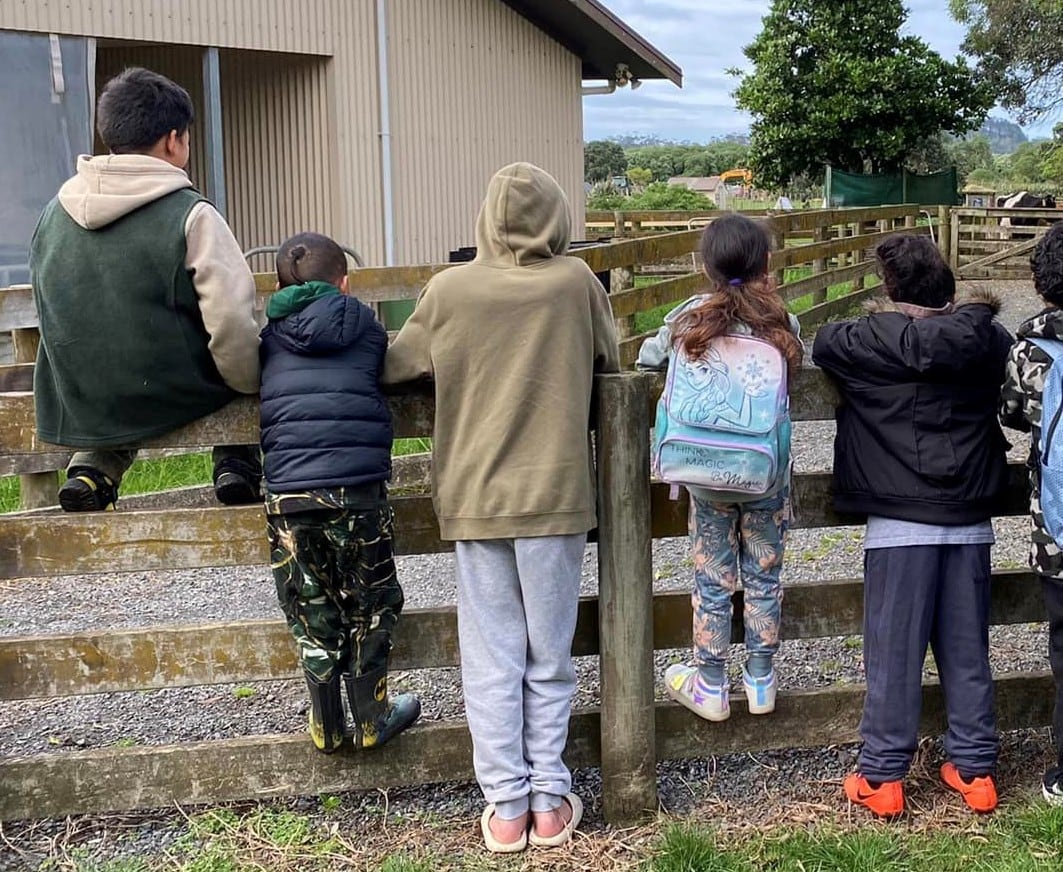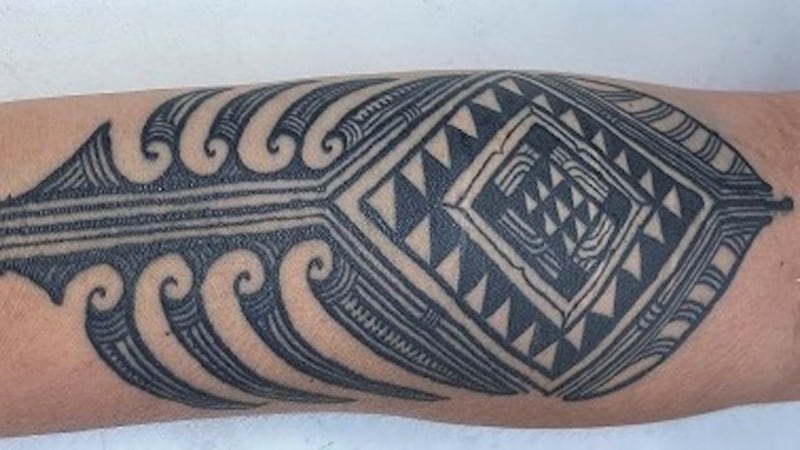Anahera shies away from being photographed but is proud of her tā moko which represents her past and future. Photo / Supplied
Anahera Kahui-Ariki (Ngāpuhi, Tainui) has gained experience the hard way to help others.
The 35-year-old works as a youth team leader for 'I Am Mangere', a branch of the Ngā Manganui o Te Hapori Trust, which provides support for those who live in the Auckland suburb. Its range of social services is aimed at creating a thriving community and Kahui-Ariki's job is a community volunteer role funded by the Ministry of Social Development.
It’s work that uses her experience of hardship in her own life.
Kahui-Ariki was just 14 years old when she took over caring for six of her younger siblings because her parents were meth users. She eventually gained legal custody of all nine siblings, battling government agencies and the courts to keep them together, and put them in school at Te Kura Kaupapa Māori o Ngā Maungārongo in Mt Albert.
"It was quite traumatising. We had a rough upbringing, which was normalised and passed down through generations."
The violence wasn't only at home. There was a decade where she claims her family suffered home raids and violence from Pākehā police officers.
"They only looked at the crime side. We were a 'family of thugs' when really, we were a broken family," she recalls.
The hurt and struggle has taken its toll. Kahui-Ariki attempted suicide at one point.

A visit to Ambury Farm for kids from Mangere is one of the annual events run by I Am Mangere. Photo / Supplied
Destiny Church gave her much-needed strength to keep Kahui-Ariki going. She had the first of her eight children at age 17— "a child raising children"—and the church programmes, such as Boys 2 Men and Legacy Diamonds (which connects women in groups and online), helped her make important decisions for her whānau.
"We had people who cared and built me up."
A stint at the Manukau Urban Māori Authority, which provides services and support to South Auckland Māori, also made use of her extensive knowledge of a system that was failing so many.
They were turning points for Anahera. She forgave her parents and stopped letting her partner 'overpower' her. They have since separated but they're in a good space and co-parent their children.
There was even forgiveness for the police.
A Mangere Youth Aid Officer developed a close relationship with the Kāhui-Ariki whānau. It resulted in an invitation from the Counties-Manukau police commander for Anahera to speak to officers about how they had treated her family.
The hui didn't start well. That morning Kahui-Ariki's 10-year-old brother was bailed up by police at the Mangere shopping centre.
The hui still went ahead, and Kahui-Ariki ended her story by telling them, "I'm tired of everything you've done to my family."
But the meeting also changed her association with them.
"The 'system' people became whānau. I wanted my own whānau to see that there was actual change."
The police helped her receive a new car donated by the Mangere Bridge Neighbourhood Support Group, They also showed up at her doorstep one day, this time with Christmas gifts, a day the whānau hadn't celebrated in almost a decade.
Their recommendation of Kahui-Ariki for a job at I Am Mangere was also a game changer. It was her first job after 18 years of caring for her siblings and children on welfare.
The hard lessons she learned now benefit those she helps today as a youth team leader and community champion. Kahui-Ariki is an advocate for rangatahi and whānau through the ins and outs of the justice system, putting them in touch with services for food or a home, getting them off drug addiction and out of family violence.
"I want them to feel aroha, consistency, that they're being listened to and have the tautoko to help them move forward. This is what I was missing as a child who was bringing up children."
If there are new kids at the Mangere Town Centre, they eventually find their way to Anahera and her team, who run programmes and create activities with rangatahi mentors she guides. This year alone they've supported some 30 at-risk youths, many of whom have complex needs.
She and her whānau are still tight too. Most Sundays, Anahera will call them up, get them together to eat and catch up. Her life’s milestones have also been captured in a tattoo by tā moko artist Tays Robson. It represents her survival of the trauma she suffered and her eight children.
Life is simpler. A clean house, for instance, makes her happy.
"As long as there's food on the table; the power is on and a roof over my head, we're all
good."


